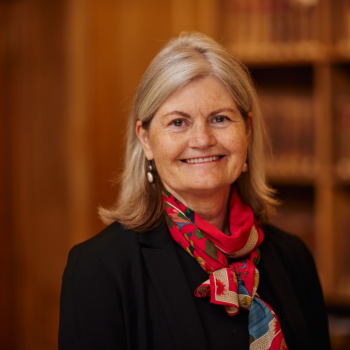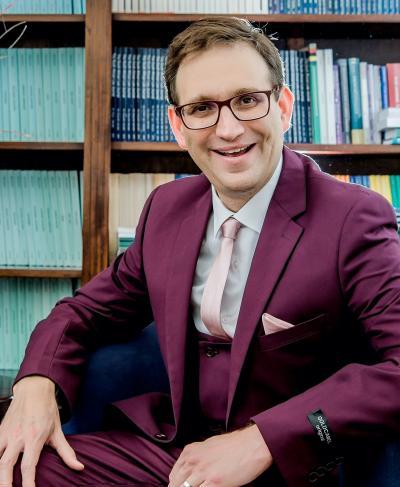Reviewing the adjudication of Economic and Social Rights under South Africa’s democratic Constitution after the first 25 years of democracy
Speaker(s):
Associated with:
Notes & Changes
This event will be hybrid, taking place in-person in the Sir Joseph Hotung Auditorium and online via Zoom. Please register here for online attendance.
More than 25 years after the South African Constitution 1996 came into force promising, in its Preamble, to “heal the divisions of the past and establish a society based on democratic values, social justice and fundamental human rights” and to “improve the quality of life of all citizens and free the potential of each person”, deep patterns of racial inequality and widespread poverty persist. One of the crucial aspects of the new Constitution was its entrenchment of economic and social rights, including the right of access to adequate housing, healthcare services, sufficient food and water, social security and education.
In the first 25 years, the Constitutional Court has heard many cases concerning economic and social rights and yet the litigation has not materially shifted the patterns of inequality that mar South African society.
This event will review the South African Constitutional Court's approach to adjudicating economic and social rights during the first 25 years of the constitutional era. In particular, it will consider some of the jurisprudential approaches adopted, including the Court’s rejection of the minimum core approach to economic and social rights, adopted by the UN’s Committee on Economic Social and Cultural Rights, the approach to remedies in these cases and the difference between the adjudication of positive and negative obligations, for example, in relation to the right of access to adequate housing. This review will require panel members to grapple with questions about the appropriate role of the Constitutional Court in South Africa’s new democracy.
Speaker
Justice Steven Majiedt

Justice Steven Arnold Majiedt is a current Justice of the Constitutional Court of the Republic of South Africa. He was appointed in 2019, leaving his seat at the Supreme Court of Appeal, where he was first appointed in 2010. Prior to this, Justice Majiedt was an advocate at the Northern Cape Society of Advocates, before his first judicial appointment at the Northern Cape High Court in Kimberley in 2000.
Justice Majiedt’s practising career was characterised by significant political work, and his ethos is primarily centred on advocating for the voiceless. During Justice Majiedt’s time as a judge he has ruled on matters both complex and controversial – ranging from international criminal law to the interpretation of statutory licensing requirements.
Chair
Professor Kate O'Regan

Kate O'Regan is the inaugural Director of the Bonavero Institute of Human Rights and a former judge of the South African Constitutional Court (1994 – 2009). In the mid-1980s she practiced as a lawyer in Johannesburg in a variety of fields, but especially labour law and land law, representing many of the emerging trade unions and their members, as well as communities threatened with eviction under apartheid land laws.
In 1990, she joined the Faculty of Law at UCT where she taught a range of courses including race, gender and the law, labour law, civil procedure and evidence. Since her fifteen-year term at the South African Constitutional Court ended in 2009, she has amongst other things served as an ad hoc judge of the Supreme Court of Namibia (from 2010 - 2016), Chairperson of the Khayelitsha Commission of Inquiry into allegations of police inefficiency and a breakdown in trust between the police and the community of Khayelitsha (2012 – 2014), and as a member of the boards or advisory bodies of many NGOs working in the fields of democracy, the rule of law, human rights and equality.
Discussants
Professor Sandra Fredman

Sandra Fredman is Professor of the Laws of the British Commonwealth and the USA at Oxford University, and a professorial fellow at Pembroke College, Oxford. She was elected a Fellow of the British Academy in 2005 and became a QC (honoris causa) in 2012.
She has written and published widely on anti-discrimination law, human rights law and labour law, including numerous peer-reviewed articles. She has authored four monographs: Comparative Human Rights (OUP, 2018); Human Rights Transformed (OUP 2008); Discrimination Law (2nd ed, OUP 2011); and Women and the Law (OUP 1997), as well as two co-authored books: The State as Employer (Mansell, 1988), with Gillian Morris, and Labour Law and Industrial Relations in Great Britain (2nd ed Kluwer, 1992) with Bob Hepple. She has also edited several books: Human Rights and Equality in Education (Policy Press, 2018, with Meghan Campbell and Helen Taylor); Discrimination and Human Rights: The Case of Racism (OUP, 2001); and Age as an Equality Issue (Hart, 2003 with Sarah Spencer). She was awarded a three year Leverhulme Major Research Fellowship in 2004 to further her research into socio-economic rights and substantive equality. She is South African and holds degrees from the University of Witwatersrand and the University of Oxford. She has acted as an expert adviser on equality law and labour legislation in the EU, Northern Ireland, the UK, India, South Africa, Canada, Malaysia and the UN; and is a barrister practising at Old Square Chambers. She founded the Oxford Human Rights Hub in 2012, of which she is the Director.
Professor David Bilchitz

Prof David Bilchitz has just recently been appointed as an Acting Judge of the Constitutional Court of South Africa for its first term in February and March 2024.
David Bilchitz is a Professor of Fundamental Rights and Constitutional Law at the University of Johannesburg and a Professor of Law at the University of Reading. He is also Director of the South African Institute for Advanced Constitutional, Public, Human Rights and International Law (SAIFAC). He is a Vice-President of the International Association of Constitutional Law (IACL) and was chief organiser of the World Congress of Constitutional Law last year. He is also a Member of the Academy of Sciences of South Africa. He was awarded a Von Humboldt Foundation Fellowship in 2017 and between August 2017 and August 2018, serving as a Visiting Research Professor at the Humboldt University in Berlin.He has a BA (Hons) LLB cum laude from the University of the Witwatersrand and an MPhil and PhD from the University of Cambridge. David worked as law clerk to Deputy Judge-President (then) Langa of the South African Constitutional Court in 2000.
One of his areas of expertise has been in the field of Socio-Economic Rights. In 2007, he published his first book, Poverty and Fundamental Rights (Oxford University Press) which defended the minimum core approach to socio-economic rights. He has written many journal articles and book chapters in this area and also taught and made conference presentations relating to these rights across the globe and recently developed an online course on socio-economic rights for the Mexican judiciary. He also publishes widely in other areas relating to constitutional law and fundamental rights with his most recent monograph being published in November 2021, and titled ‘Fundamental Rights and the Legal Obligations of Business’ (Cambridge University Press). He is also co-editor of several edited collections, the most recent of which is relevant to this seminar and due to be released by Oxford University Press in December 2023 and titled ‘Transitional Justice, Distributive Justice and Transformative Constitutionalism: Comparing Colombia and South Africa’. He has also been an advocate for fundamental rights in the public sphere in South Africa and internationally, providing input to a treaty-making process as well as catalysing and developing several reports, parliamentary submissions and campaigns. Recently, he has been the key organiser behind a new blog on constitutional law in Africa titled African Law Matter.
Tarun Khaitan

Tarun Khaitan is the Professor (Chair) of Public Law at the LSE Law School and an Honorary Professorial Fellow at Melbourne Law School. Previously, he has been the Head of Research at the Bonavero Institute of Human Rights (Oxford), the Professor of Public Law and Legal Theory (Oxford), Vice Dean (Faculty of Law, Oxford), and a Visiting Professor of Law (Chicago, Harvard, and NYU law schools).
He completed his undergraduate studies (BA LLB Hons) at the National Law School (Bangalore) in 2004 as the 'Best All-Round Graduating Student'. He then came to Oxford as a Rhodes Scholar and completed his postgraduate studies at Exeter College. His research has been cited in over a dozen cases by influential courts, including the Indian Supreme Court, the Canadian Supreme Court, the European Court of Human Rights, the Israeli Supreme Court, the Madras High Court, the High Court of Kerala, and the Superior Court of Quebec.


 Add to calendar
Add to calendar


